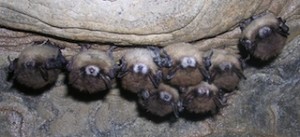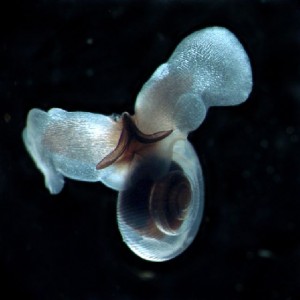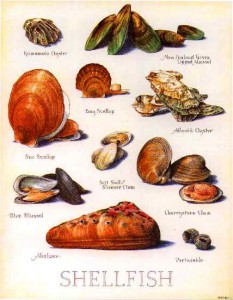A Deadly Plague Endangers Bats
We’re all familiar with our furry flying mammalian friends, the bats. You can hear their distinct chirps at night, even here at UBC, as they fly around in search for food. However, on the other coast of North America they’re not doing so well.
A new plague is devastating bats in 14 different states and 2 Canadian provinces in the North-eastern part of the continent. It has already killed more than a million bats across 9 different species since it was first discovered in 2006. The disease is a fungal infection caused by Geomyces destructans, commonly referred to as “white-nose syndrome” (WNS), because bats develop white patches on their muzzles and ears.
When the bats go into a state of hibernation for the winter, they lower their body temperature and subsequently reduce the power of their immune system, making them easy targets. The disease seems to disrupt the normal hibernation patterns of the bats, often causing them to awaken too early. Many of the infected bats appear underweight because they go out in search for food in the winter where there isn’t any. Eventually, the infected bats end up starving to death. Research suggests that the disease is being spread from cave to cave by the bats themselves, since most have been closed down to humans and WNS continues to spread. The mortality rate is very high: about 85% of the bats in an infected cave will die from the disease.
A Boston University ecologist, Winifred Frick, suggests that little brown bats may be entirely wiped out in north-eastern United States in the next 16 years. For all the bat lovers out there, this news can come as a bit of shock, but there are also other repercussions to consider. A colony of bats can consume thousands of pounds of insects in a season. Imagine how many more mosquitoes and crop damaging insects there would be if WNS continues to spread unhindered?
There does seem to be a ray of hope; a bat with WNS was discovered in France last year, but it appeared to be of normal weight. Scientists have speculated that Geomyces destructans must be native to Europe and that bats there have resistances to it.
Hopefully more research in the future will provide a means to protect the bats from infection.
The original article can be found here: http://discovermagazine.com/2011/jan-feb/13
For more general information on the disease, see: http://en.wikipedia.org/wiki/White_nose_syndrome





